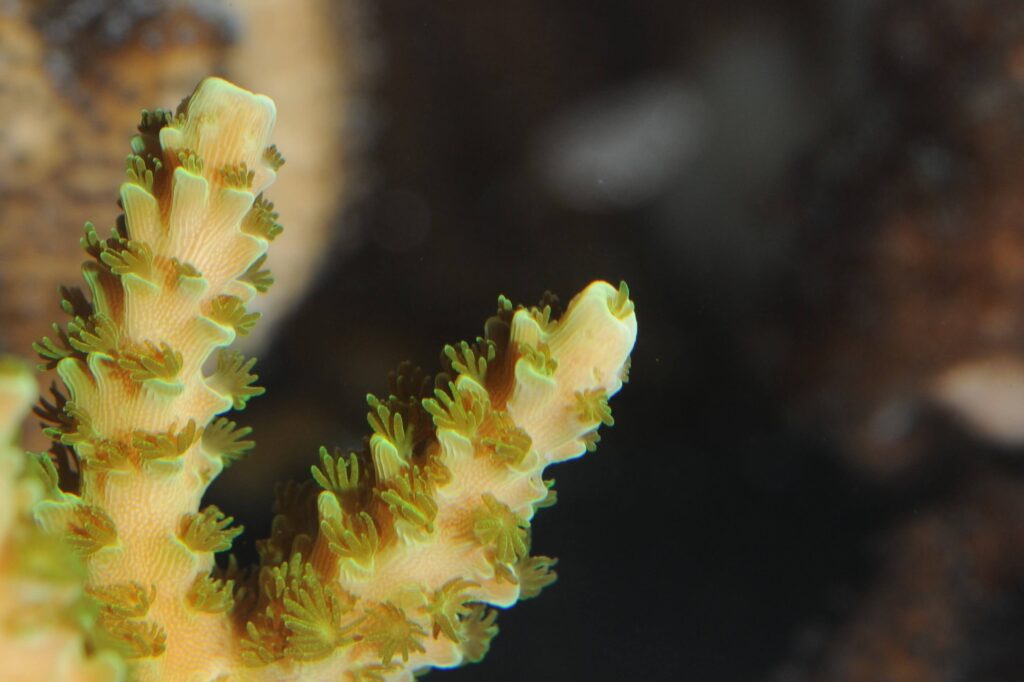How climate change affects corals’ food supply

According to the latest research by Monaco’s scientific centre (CSM), photosynthesis plays a fundamental role in ensuring the survival of coral reefs. However, climate change threatens it.
Reef-building corals have the peculiarity of living symbiotically with little photosynthetic algae which are found in the coral’s very cells. These algae are corals primary food supplier, which get 80 to 90 % of their nutrients from the algae’ photosynthetic process.
Without algae, corals have higher stress levels
In the case of marine heatwaves, corals undergo a process called coral bleaching. Coral bleaching occurs when the animal expels algae that live inside its tissues. Without the algae, scientists also note that corals’ stress levels increase. « After the corals expel the algae, they feed themselves almost exclusively by capturing zooplankton and we have proof that the zooplankton also helps sustain the remaining algae”, explains Monaco’s scientific centre.
The research looked at the impact of zooplankton on coral bleaching. The results found that ” capturing zooplankton is a key factor in corals’ survival against climate change”. Corals fed with zooplankton are less exposed to coral bleaching, meaning that their photosynthesis is stronger than that of non-fed corals. Zooplankton helps strengthen photosynthesis also in warmer temperatures, scientists say.













